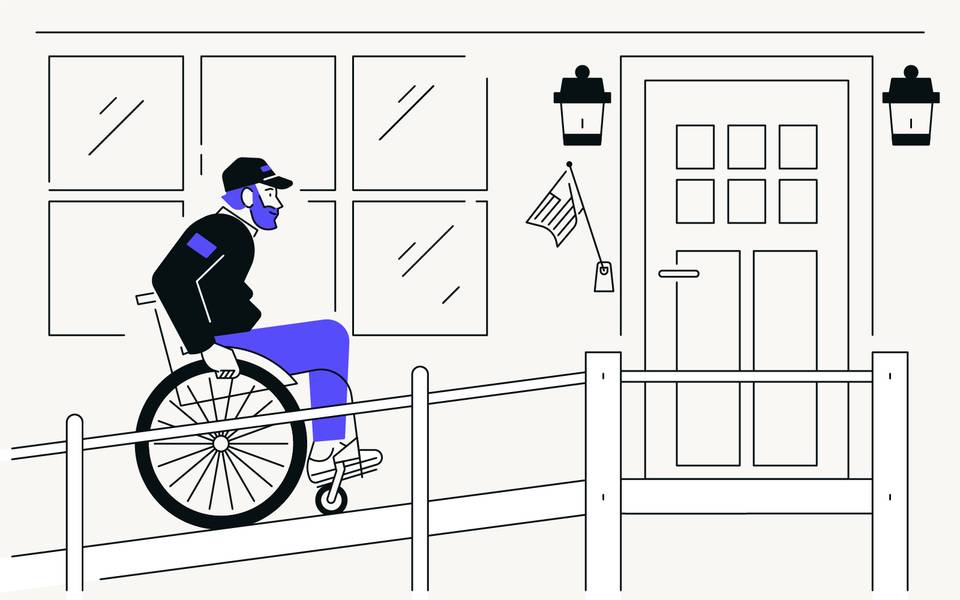Habitat for Humanity - Repair Corps program
The nonprofit housing organization, Habitat for Humanity, has a Repair Corps program to aid veterans with both critical home repairs and standard home repairs.
What does it offer?
Repair Corps offers critical home repairs, which are any home repairs that are necessary to enhance the critical life, health and safety of the veteran. Examples of critical home repairs include accessibility modifications and the extension or installation of electrical and plumbing systems.
The program also helps to support standard home repairs for veterans when funds are available, but critical repairs are the priority.
Eligibility requirements:
All veterans with an honorable discharge are eligible for this program, regardless of group identity. The home being repaired must not be a rental, and it has to be the veteran’s primary residence.[4]
Purple Heart Homes
Purple Heart Homes offers housing solutions for veterans through two distinct programs: Veterans Aging in Place (VAIP) and Veterans Home Ownership Program (VHOP).
What does it offer?
Veterans Aging in Place (VAIP): The VAIP program is meant to help veterans make safety or accessibility repairs to a home they own.
Veterans Home Ownership Program (VHOP): The VHOP program matches veterans who are looking to own a home with homes that can be modified to their health needs.
Eligibility requirements:
Veterans don’t need to be awarded a Purple Heart to apply. See eligibility factors below:
- A veteran must receive at least a 10% related service disability rating from the VA.
- Financial and personal background checks are also used to determine eligibility.
Learn about what goes into the application packet and apply here.
Operation Homefront
Operation Homefront provides critical financial assistance for repairs and family expenses to eligible veterans and service members.
What does it offer?
Based on eligibility, financial assistance is given for a range of expenses including home repairs, auto repairs, moving and relocation, utilities, transportation, medical and food assistance.
Eligibility requirements:
Deployed service members and honorably discharged veterans with the following are eligible:
- Members who actively served in the U.S. military and suffered a service-related injury or illness after 9/11.
- Veterans must be honorably discharged.
- Active service member with rank E-1-E-6 and DEERS-eligible/legal dependents and meets one of the following:
- Currently deployed overseas and earning Hostile Fire Pay (HFP)
- Serving on a ship that has been at sea for 30+ days with mission status
- Being paid Hostile Fire Pay while unaccompanied on overseas PCS orders
- Reservist on Title 10 orders (either returned from HFP in the last 180 days or will be deployed with HFP in the next 90 days)
- National Guard member
If any of these requirements are met, apply during the initial application period (1st through the 10th of each month) on the Operation Homefront site.
Rebuilding Together, Inc. - Veterans at Home
The Veterans at Home program seeks to help veterans and their families improve the safety, accessibility, and independence of their homes.
What does it offer?
Home modifications and repairs are offered at no cost through local affiliates. These include:
- Rehabilitation of the whole home for safety
- Accessible home modifications
- Facilitation of aging in place
Eligibility requirements:
Eligibility varies based on local applications. To apply and view eligibility requirements, find your local Rebuilding Together affiliate here.[5]






